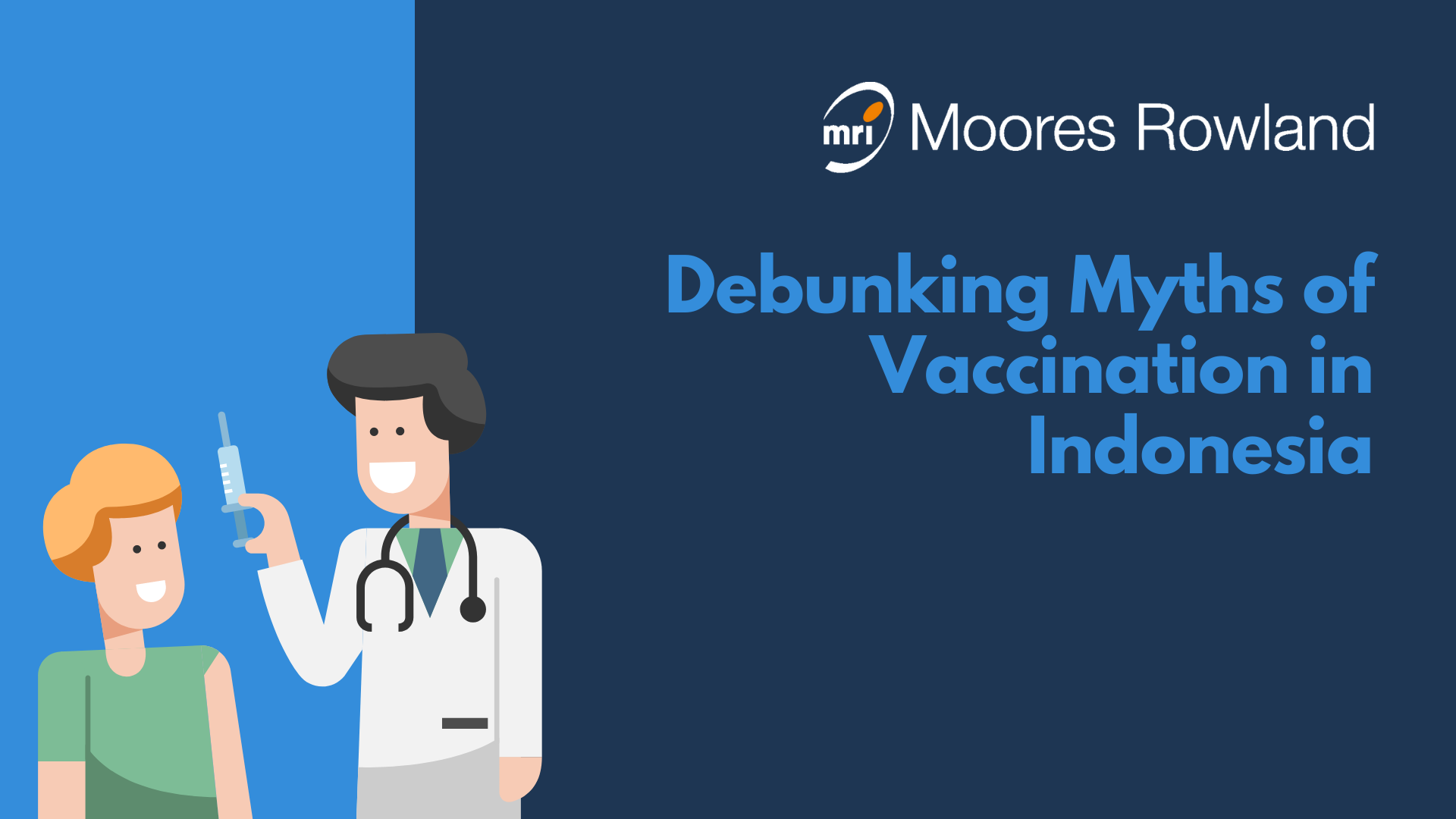Debunking Myths of Vaccination in Indonesia
August 2021
Written by: Marsha Huwaidaa
Since March 2020, over 4.29 M people have lost their lives to Covid-19 in the world. And there are more than 200M active cases since March 2020. Rolling out the vaccine can be seen as a logical step to protect people from real and immediate risk. Vaccination has been vastly studied across the world, affirming that a high rate of vaccination coverage in humans is necessary for preventing infectious diseases and contributing to declining mortality. Despite the effective rate as an outcome of the vaccination program, there is a rising trend of people refusing the policy on vaccination. This trend is referred to as the anti-vaccination movement. The basis for these views revolves around contentions that vaccinations provoke infirmity, use unscrupulous studies, and overall hold a lot of skepticism, which causes hesitancy. The lack of information has also become one of the main reasons that the anti-vaccination movement is more widespread in Indonesia. There is a number of cases that have led to vaccination rates dropping below the levels needed for herd immunity.
According to Randolph & Barreiro (2020), herd immunity occurs when most of the population is vaccinated that there are then too few people available to become hosts, so transmission of the disease or virus ends. One of the most important elements of herd immunity is it preserves everyone, whether they are vaccinated or haven't been vaccinated. Thus, The Government in Indonesia targets vaccination to be carried out on 181.5 million people. To achieve this target, the government continues to boost daily vaccinations, including by targeting 2 million doses per day starting this August. Indonesia has injected more than 67 million doses of the Covid-19 vaccine, to be exact 67,761,337 doses or around 24.49 percent of the total population of Indonesia.
Debunking Widespread Myths of Vaccination In Indonesia
As reported by Missouri University Health Care and the Centers for Disease Control and Prevention, there are several myths that have been widespread throughout the world. We have curated the most common hoaxes that held accountability for the rising numbers of anti-vaccinations.
- The Covid-19 vaccine is not safe because it was developed quickly?
No, The Covid-19 vaccine is proven safe because it has gone through a series of testing processes with strict standards. Various stages of clinical trials must be passed until the Covid-19 is proven safe and obtains Emergency Use Authorization (EUA) or emergency use authorization.
- Does the Covid-19 vaccine cause infertility in women?
00% Wrong! Information that says the Covid-19 vaccine causes infertility in women is not true. Experts say the amino acid sequence (shared between spike protein and placental protein) is too short to trigger an immune response and does not affect fertility.
- Having been infected with Covid-19 does not need to be vaccinated?
Someone who has been infected with Covid-19 still has to be vaccinated. Currently, experts do not know how long a person is protected from the virus after recovering from Covid-19. The immunity acquired from infection, called innate immunity, varies from person to person. Some preliminary evidence suggests that your natural immunity may not last long.
- The Covid-19 Vaccine will change your DNA?
The Covid-19 vaccine does not change or interact with DNA in any way so it is not true that the vaccine can change DNA. Both the mRNA vaccine and the Covid-19 virus vector send instructions (genetic material) to cells to build protection against the coronavirus. However, that genetic material never enters the nucleus of the cell, which is where DNA is stored.
A hoax that has been widespread was misleading. We could never ignore the fact that vaccination is crucial and it is the easiest thing you could’ve done to contribute to a better future. Hence, 245 employees and interns on Moores Rowland Indonesia have been vaccinated. Our vaccination rates have reached 90% of our employees. Certainly, we’ve obeyed The Government regulation of vaccine recommendations. Our smallest contribution is still a contribution.
How about you, have you got #Vaxxed yet?
\


